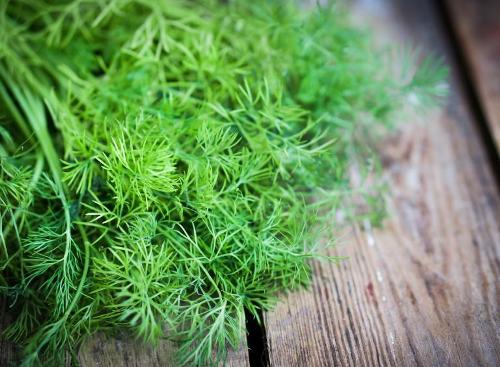Dill: Benefits, medicinal properties, contraindications and remedies
The dill is an aromatic plant known since ancient times that lead us to the times of the Greeks, Egyptians and Romans and its origin is from the eastern Mediterranean and Asia Minor.
The scientific name of Dill is “Anethum graveolens” and belongs to the Umbelliferae family. Nowadays dill is cultivated in many countries and also it grows wild.
It is an annual plant, which can grow up to one meter tall and blooms in summer. When collecting seeds, we should do when they are ripe, we can appreciate in its color when should be brown.
Dill is an aromatic plant, aniseed odor and slight smell of lemon and in addition to its use for its medicinal properties, Dill is also used in cooking to flavor recipes of fish, seafood, to marinate the salmon, in salads, sauces.
When using Dill is best to done in the fresh version to better appreciate both its flavor and aroma. If we cannot get fresh in the market we will also find like dry grass.
Dill benefits
The parts used in this plant are the leaves, fruits and seeds. On the other hand, from a nutritional point of view it is rich in fiber, carbohydrates, vitamins (A, C, B vitamins, B1, B2, B3, B5, B6, B12), minerals (calcium, magnesium, iron, sodium, phosphorus, potassium, zinc, copper, selenium, manganese) and fatty acids.
On the other hand, we can mention that dill is antispasmodic, carminative, diuretic, aromatic, galactagogue, antiseptic and anti-emetic.
As regards its medicinal benefits, dill is ideal to combat flatulence, soothe colic associated with gases, promote digestion, increase the secretion of breast milk in the case of nursing mothers, to calm the pains associated with the menstruation, to eliminate the liquids retention and to fight the halitosis.
Preparing natural remedies with Dill
Infusion of dill seeds to promote digestion
To prepare this infusion need Dill seeds.
Ingredients:
- 1 cup of mineral water.
- Two teaspoons of dill seeds.
Preparation:
Crush the Dill seeds. We put the water in a saucepan to boil. When it begins to boil add the seeds. Remove from heat.
We cover the infusion and let rest for 10 minutes. We uncover the infusion, and sneaked when warm we can take it.
If you prefer the infusion with sweet touch, we will add sweeten as more we liked. This infusion can take a cup after meals.
Dill seeds to combat halitosis
One of the benefits that comes Dill is also good if suffering from halitosis to prepare this home remedy need to use dill seeds.
Once we have the seeds of dill we take a few and chew. This remedy is also effective when we have eaten some spicy food and do not want it to show us the bad breath.
Contraindications of dill
Dill has no contraindications and it is not a toxic plant, and as we mentioned at the beginning of this post it is a medicinal plant that not only uses to prepare home remedies as well as a healthy ingredient in the kitchen.
Cases in which not recommended for use are:
- In case of pregnancy.
- If you suffer from gastritis.
- In children.
Although one of the benefits attributed to Dill is to increase the secretion of breast milk, nursing mothers who are breastfeeding should consult with your doctor before taking this herb.
